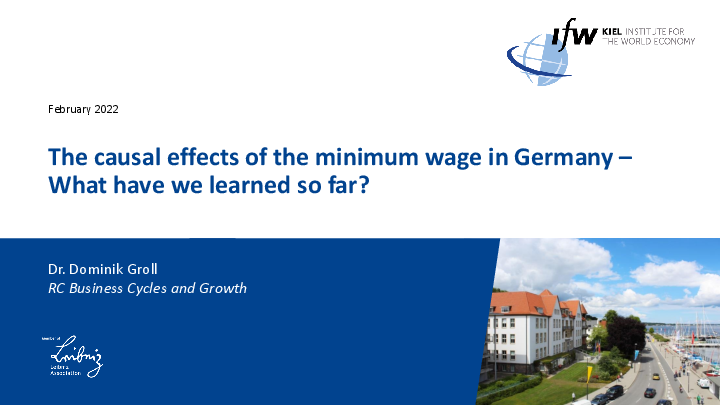Presentation
The causal effects of the minimum wage in Germany – What have we learned so far?
Authors
Publication Date
Key Words
Related Topics
Labor Market
Germany
Economic Policy in Germany
In Germany, a nationwide statutory minimum wage was introduced in 2015. It started at 8.50€ per hour and increased in several steps to 9.82€ as of January 2022, each step following the recommendations of the Minimum Wage Commission. The newly-elected federal government is now planning to lift the minimum wage to 12€ as of October 2022, which is the first time the government does not follow the recommendations of the Minimum Wage Commission.
This presentation gives an overview of the empirical evidence on the causal effects of the minimum wage introduction on hourly wages, employment, working hours, poverty measures and more. It then discusses to what extent these findings can be carried over to the minimum wage hike to 12€ planned for this year.






